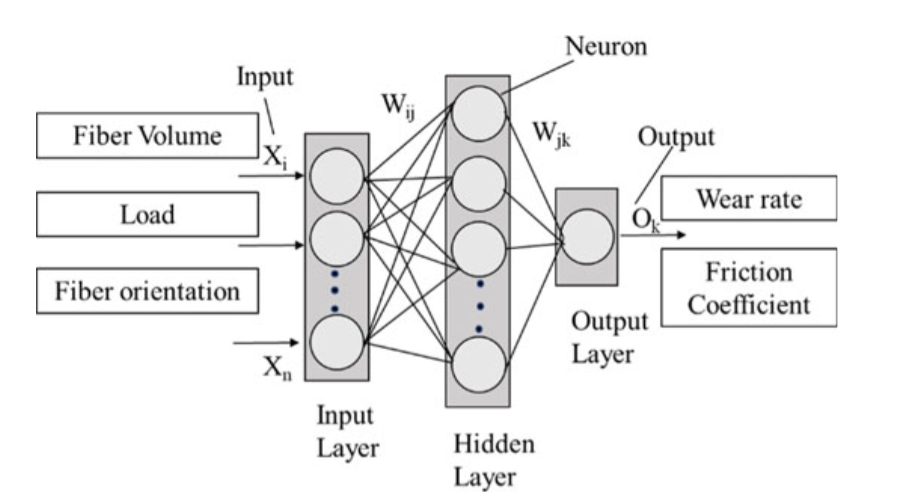I am currently working as a Postgraduate Researcher at the University of Leeds, where I am actively involved in research activities. Prior to this, I successfully completed my master's degree through the renowned Erasmus Mundus joint program, specializing in Tribology and Bachelor's degree in Mechanical Engineering from VTU in Belgaum, India. Further I handle the social media pages for Tribonet and I have my youtube channel Tribo Geek.
Artificial Intelligence in Tribology
Table of Contents
Introduction
Traditional ways of testing tribological properties are both time-consuming and costly. However, there’s a promising solution that involves using Artificial Intelligence (AI) to make the process more efficient. This new method employs artificial neural networks for better analysis. Unlike the old methods, these networks are great at handling multiple tasks simultaneously, even with limited data. The accuracy of predictions depends on the quality and quantity of the data, allowing for the modeling of physical mechanisms and simulating experiments over time. Applying this AI technique in industries like aerospace and automotive, as well as in tribological testing, is expected to simplify procedures and significantly cut testing costs. This review takes a closer look at how AI is used in tribology, exploring various models and approaches that eliminate the need for lengthy experiments [1].

Fig-1 The structure of the three-layered neural network to study the wear rate and COF [1]
Artificial Neural Network
Performing experiments and analyzing results can be a time-consuming and expensive process, often requiring advanced technology to minimize both time and cost. The application of computers in mechanical systems has seen significant growth as a solution to this challenge. One notable method in this context is the use of Artificial Neural Networks (ANN), which has proven effective in reducing the time and cost associated with experiments. This approach focuses on studying various tribological properties, including the coefficient of friction, wear, lubricant properties, film thickness formation, and other surface mechanical properties of materials like composites and polymers.
ANN models are designed to predict the performance of a mechanism in its conceptual phase, utilizing critical performance parameters obtained from experiments. Functioning as a mathematical tool that mimics the human brain’s nervous system, ANN processes input and output data to solve complex engineering and scientific problems. Unlike conventional analytical techniques, ANN has the unique ability to predict outputs with limited input data after the learning process. One of ANN’s major advantages lies in its superior learning potential and its capacity to model multi-dimensional, nonlinear, and complex functions. The network “learns” by organizing provided experimental data and assuming the nature of relationships within the given problem. Moreover, ANN exhibits insensitivity to minute changes, such as noise, helping to avoid errors. Recent investigations have applied ANN to experiments like pin-on-disk (POD), fretting wear tests, as well as tensile and compressive strength experiments.
Conclusion
The application of ANN has proven instrumental in studying tribological properties such as condition and tool wear monitoring, wear and friction, lubrication, lubricant formulation, surface modification, and materialistic properties. One notable advantage is the ability of ANN to predict subsequent results based on the initial experimental datasets, eliminating the need for additional experiments. This capability not only contributes to a reduction in the duration of experiments but also represents one of the most promising applications of ANN. In essence, ANN serves as a powerful simulation tool, offering a valuable resource for tribologists to effectively leverage, ultimately saving time and resources in their investigations.
Reference

Be the first to comment